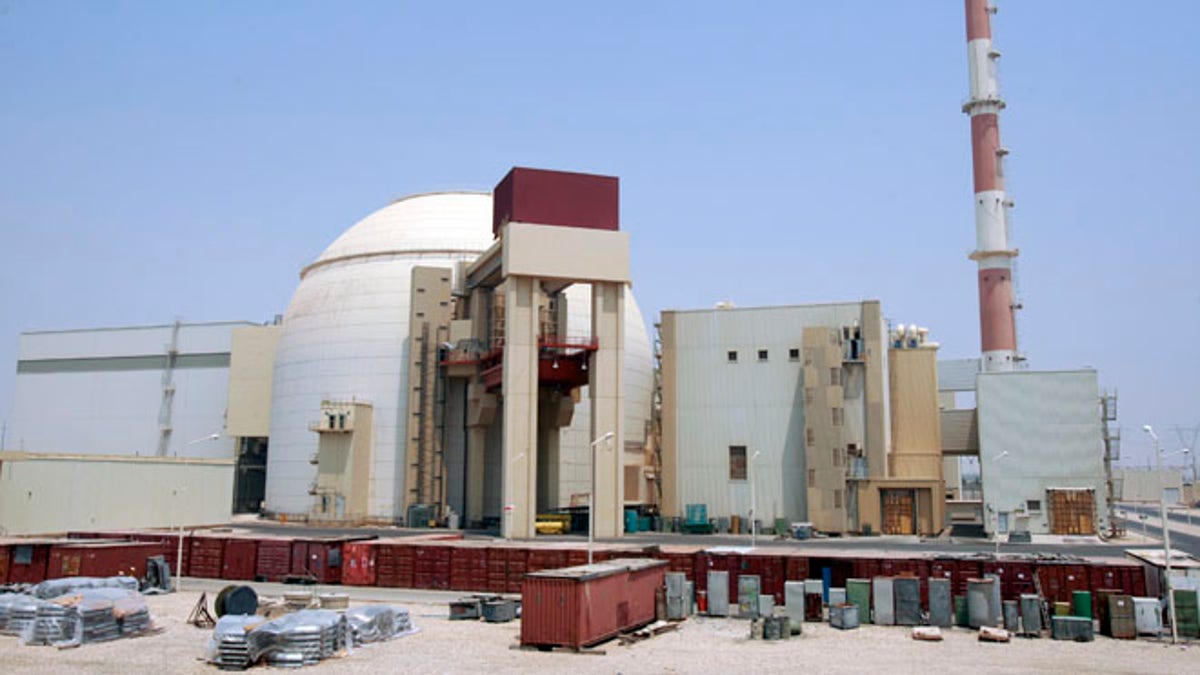
Aug. 21, 2010: A general view of the Bushehr main nuclear reactor, 746 miles south of Tehran, Iran. (Reuters)
Internal State Department emails reportedly show the White House cooperated with a journalist whose revelations about an anti-Iran cyberattack are now the subject of a high-profile leak probe.
The Washington Times reported Monday on emails, from late 2011 to early 2012, obtained by the nonprofit Freedom Watch after the group filed suit in federal court. They detail discussions New York Times reporter David Sanger had with the State Department before the publication of a book that revealed classified information about the so-called Stuxnet computer worm, which targeted Iran's nuclear facilities.
In one email, Sanger reportedly pressed the State Department to cooperate by noting the help he'd gotten from other wings of the Obama administration.
"I'm getting a bit concerned about the pace of our interviews -- or lack of pace, to be more precise -- for the book," Sanger reportedly said in the October 2011 message to a State Department press officer. "The White House is steaming away; I've seen [National Security Adviser Thomas E.] Donilon many times and a raft of people below. Doing well at the Pentagon. But on the list I sent you starting on Sept. 12 we've scheduled nothing, and chapters are getting into final form."
Daily politics news delivered to your inbox: sign up for our newsletter
Donilon was the national security adviser at the time, before leaving the administration in July. He was replaced by former U.N. Ambassador Susan Rice. The nature of his discussions with Sanger are unclear.
Fox News confirmed in late June that another high-ranking official, retired Gen. James Cartwright, is under investigation for allegedly leaking classified information on the Iran program. Cartwright was vice chairman of the Joint Chiefs of Staff at the time.
Larry Klayman, director of Freedom Watch, told The Washington Times that the emails show the Obama administration had a "super-close relationship" with Sanger and was "literally force-feeding him."
At the same time, the Justice Department is investigating that and other security leaks, after having appointed two U.S. attorneys to probe them last year.
The information about the anti-Iran program was first reported in a June 2012 New York Times article adapted from Sanger's book. It revealed behind-the-scenes details on the Stuxnet program, and concern that it had spread from Iran's nuclear facilities to the Internet.
Some lawmakers claimed that senior officials in the administration must have been complicit in leaking details about the program. The administration has rejected any suggestion that it authorized the leaks for political gain.




